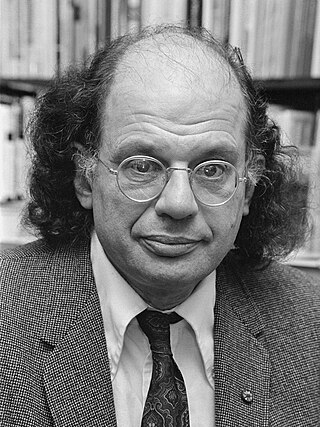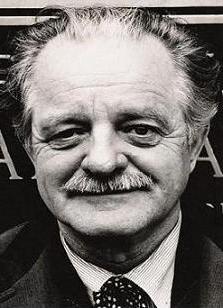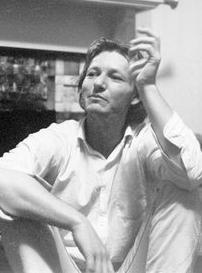Related Research Articles

Irwin Allen Ginsberg was an American poet and writer. As a student at Columbia University in the 1940s, he began friendships with Lucien Carr, William S. Burroughs and Jack Kerouac, forming the core of the Beat Generation. He vigorously opposed militarism, economic materialism, and sexual repression, and he embodied various aspects of this counterculture with his views on drugs, sex, multiculturalism, hostility to bureaucracy, and openness to Eastern religions.

The Beat Generation was a literary subculture movement started by a group of authors whose work explored and influenced American culture and politics in the post-World War II era. The bulk of their work was published and popularized by Silent Generationers in the 1950s, better known as Beatniks. The central elements of Beat culture are the rejection of standard narrative values, making a spiritual quest, the exploration of American and Eastern religions, the rejection of economic materialism, explicit portrayals of the human condition, experimentation with psychedelic drugs, and sexual liberation and exploration.

"Howl", also known as "Howl for Carl Solomon", is a poem written by Allen Ginsberg in 1954–1955 and published in his 1956 collection Howl and Other Poems. The poem is dedicated to Carl Solomon.

Lawrence Monsanto Ferlinghetti was an American poet, painter, social activist, and co-founder of City Lights Booksellers & Publishers. An author of poetry, translations, fiction, theatre, art criticism, and film narration, Ferlinghetti was best known for his second collection of poems, A Coney Island of the Mind (1958), which has been translated into nine languages and sold over a million copies. When Ferlinghetti turned 100 in March 2019, the city of San Francisco turned his birthday, March 24, into "Lawrence Ferlinghetti Day".

City Lights is an independent bookstore-publisher combination in San Francisco, California, that specializes in world literature, the arts, and progressive politics. It also houses the nonprofit City Lights Foundation, which publishes selected titles related to San Francisco culture. It was founded in 1953 by poet Lawrence Ferlinghetti and Peter D. Martin. Both the store and the publishers became widely known following the obscenity trial of Ferlinghetti for publishing Allen Ginsberg's influential collection Howl and Other Poems. Nancy Peters started working there in 1971 and retired as executive director in 2007. In 2001, City Lights was made an official historic landmark. City Lights is located at 261 Columbus Avenue. While formally located in Chinatown, it self-identifies as part of immediately adjacent North Beach.

Kenneth Charles Marion Rexroth was an American poet, translator, and critical essayist. He is regarded as a central figure in the San Francisco Renaissance, and paved the groundwork for the movement. Although he did not consider himself to be a Beat poet, and disliked the association, he was dubbed the "Father of the Beats" by Time magazine. Largely self-educated, Rexroth learned several languages and translated poems from Chinese, French, Spanish, and Japanese.

The term San Francisco Renaissance is used as a global designation for a range of poetic activity centered on San Francisco, which brought it to prominence as a hub of the American poetry avant-garde in the 1950s. However, others felt this renaissance was a broader phenomenon and should be seen as also encompassing the visual and performing arts, philosophy, cross-cultural interests, and new social sensibilities.

The City Lights Pocket Poets Series is a series of poetry collections published by Lawrence Ferlinghetti and City Lights Books of San Francisco since August 1955.

Kirby Doyle, born Stanton Doyle, was an American poet. He was featured in the New American Poetry anthology, with the so-called "third generation" of American modernist poets. He was one of the San Francisco Renaissance poets who laid the groundwork for Beat poetry in San Francisco. Doyle also wrote novels.

The Six Gallery reading was an important poetry event that took place on Friday, October 7, 1955, at 3119 Fillmore Street in San Francisco.

Charles Plymell is a poet, novelist, and small press publisher. Plymell has been published widely, collaborated with, and published many poets, writers, and artists, including principals of the Beat Generation.

Harold Norse was an American writer who created a body of work using the American idiom of everyday language and images. One of the expatriate artists of the Beat generation, Norse was widely published and anthologized.
Donald Merriam Allen was an American editor, publisher and translator of American literature. He is best known for his project The New American Poetry 1945-1960 (1960), one of the anthologies of contemporary American writing he released.
Richard William McBride was an American beat poet, playwright and novelist. He worked at City Lights Booksellers & Publishers from 1954 to 1969.

Nancy Joyce Peters is an American publisher, writer, and co-owner with Lawrence Ferlinghetti of City Lights Books and Publishers in San Francisco until Ferlinghetti's 2021 death.

Corso: The Last Beat is a 2009 documentary film, with on-screen narration by Ethan Hawke and appearances by Patti Smith, Allen Ginsberg, William Burroughs and Gregory Corso.

The Club Fugazi is a small theater and nightclub located in the North Beach district at 678 Green Street, San Francisco, California.

Howl is a 2010 American film which explores both the 1955 Six Gallery debut and the 1957 obscenity trial of 20th-century American poet Allen Ginsberg's noted poem "Howl". The film is written and directed by Rob Epstein and Jeffrey Friedman and stars James Franco as Ginsberg.

Shigeyoshi "Shig" Murao was a Japanese-American bookseller who is mainly remembered as the City Lights manager and clerk who was arrested on June 3, 1957, for selling Allen Ginsberg's Howl to an undercover San Francisco police officer. In the trial that followed, Murao was charged with selling the book and Lawrence Ferlinghetti with publishing it. Murao and Ferlinghetti were exonerated, and Howl was judged protected under the First Amendment, a decision that paved the way for the publication of Henry Miller, D.H. Lawrence, William Burroughs, and many other writers who offended the sensibilities of the majority.
Christopher Felver is an American photographer and filmmaker who has published several books of photos of public figures, especially those in the arts, most notably those associated with beat literature. He has made numerous films, including a documentary on Lawrence Ferlinghetti, Ferlinghetti: A Rebirth of Wonder, released in 2013.
References
- ↑ "Beat Generation Biographer, Ginsberg Archivist Bill Morgan to Speak". UNC University Libraries. Archived from the original on September 7, 2008. Retrieved March 2, 2022.
- ↑ Horton, Leon (May 2023). "Keeper of the Sacred Scrolls: An Interview with Bill Morgan". Beatdom (23): 95.
- ↑ Horton, Leon (May 2023). "Keeper of the Sacred Scrolls: An Interview with Bill Morgan". Beatdom (23): 96.
- ↑ I celebrate myself : the somewhat private life of Allen Ginsberg, WorldCat
- ↑ The typewriter is holy : the complete, uncensored history of the Beat generation, WorldCat
- ↑ "Bill Morgan". UNC Library. Archived from the original on September 20, 2012. Retrieved March 2, 2022.